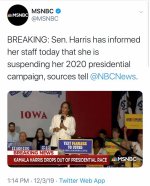In other words, a huge hike in the tax rate! I'm sorry to have to inform you, but there's no such thing as free lunch! Someone always has to pay!
So you'd prefer to pay $600 a month to a health insurance company as opposed to $200 a month in taxes?
Before I dropped my private health insurance, I was paying around $400AUD per month for two adults for basic hospital cover, which is a lot of money for someone living off an aged pension to pay. We have a universal public health system in Australia, paid for by a tax surcharge on salaries, which of course only covers a small percentage of the true cost of this black hole called " public health, or Medicare. "
But the waiting list for elective surgery can and does stretch into years. My partner had to wait 2 years for a knee replacement for example.
At the present time, around 40% of people are also covered by private health insurance, and this number is slowly but surely diminishing. The day of reckoning isn't too far away if as it seems likely the number of privately insured people drops to unsustainable levels. Especially the younger people. Then it will either be a substantial increase in taxes, or the dismantling of Medicare forcing every one to either takes pot luck with their health, or 're join a private health insurance company.
Like I keep saying, there's no such thing as a free lunch!

